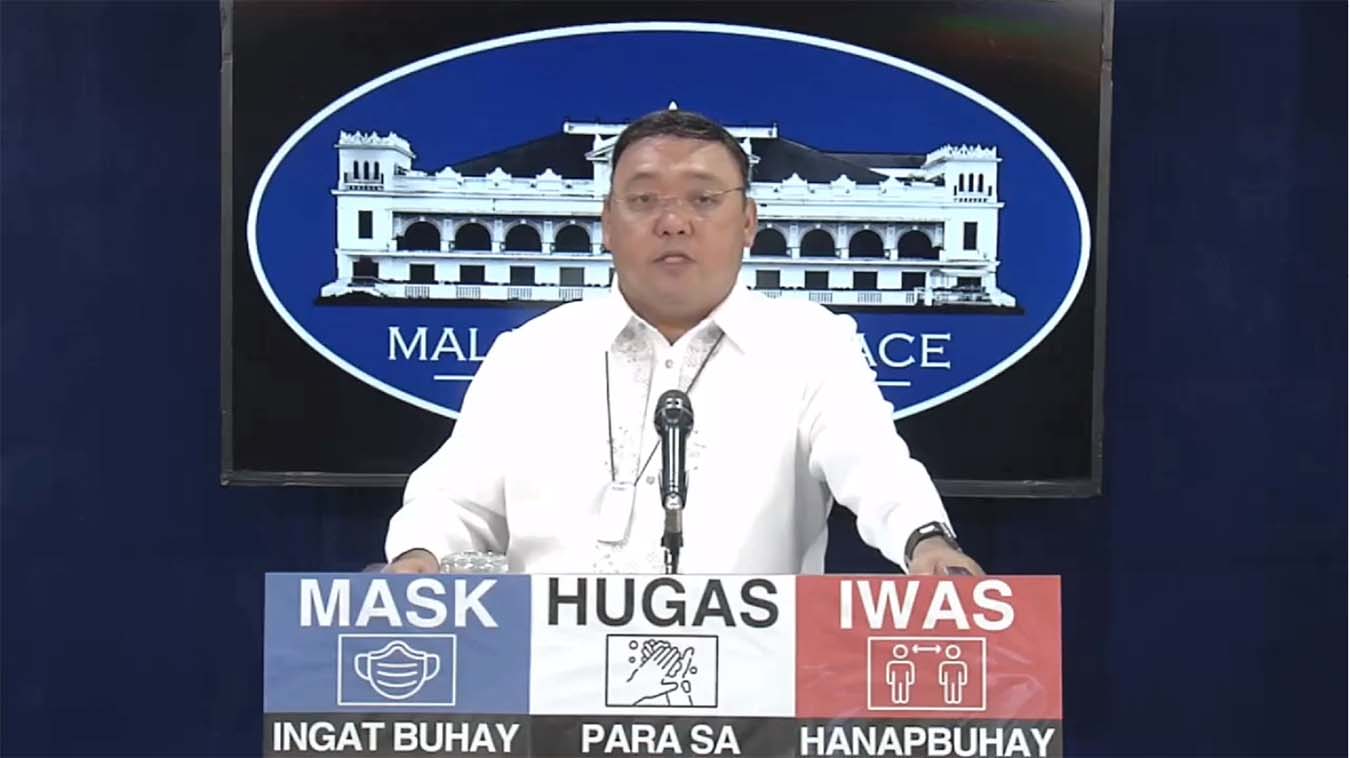
Presidential Spokesperson Secretary Harry Roque Jr, who is the concurrent Inter-Agency Task Force (IATF) spokesperson, on Tuesday, November 24, said that the Department of Health (DOH) is already preparing a contingency plan for a post-holiday surge in COVID-19 cases in view of the Christmas season.
“Mas mabuti nang maagap, sabi nga. Sa ngayon, alam natin na ang Christmas season ay isang masayang okasyon sa Pilipinas kung saan marami ang pagtitipon, pagkikita-kita at reunions ng mga miyembro ng pamilya at mahal sa buhay,” said Roque, “… siguraduhin na sa darating na holiday season ay mapapanatili natin ang minimum public health standards.”
Secretary Roque said that the DOH has already released Circular 2020-0355 to ensure that the public will be able to observe and practice the minimum public health standards during the holiday season.
The DOH Circular identified holiday activities that can be classified as safe, moderate risk, and high risk. Per the said Circular, classified as safe activities are attending online masses, noche buena or media noche with the family inside the home, online video calls among family members who are apart during the holiday season, and shopping in online stores.
Classified as having moderate risk are small gatherings in public areas that take into consideration physical distancing and restrictions on mass gatherings. High risk activities include physical attendance in indoor religious activities with many attendees, shopping in crowded malls and tiangge, big gatherings in enclosed spaces, and singing, speaking loudly, and physical contact.
In the same briefing, Secretary Roque confirmed that the Philippines is now set to procure vaccines for 60 million Filipinos, as the government is already in talks with vaccine manufacturers Sinovac, AstraZeneca, Pfizer, and the manufacturer of a Russian vaccine.
The Palace official said that there is already a budget set aside for the procurement of the vaccines, amounting to P73.2-billion, as assured by Finance Secretary Carlos Dominguez III. Of this amount, P40-billion will be coming from multilateral agencies like the World Bank and Asian Development Bank, P20-billion will be coming from domestic sources like the Landbank of the Philippines, Development Bank of the Philippines, and government-owned and controlled corporations, and the P13.2-billion will be from bilateral sources.
“Meron pa po tayong P2.5-billion na nakasaad sa ating pang-taunang budget (2021 budget) at meron pa tayong P10-billion na reserved galing po sa 2020 budget,” said Secretary Roque. The COVID-19 vaccine would cost $25 or P1,200 per individual, therefore, the P73.2-billion government allocation for the vaccines will benefit 60 million Filipinos, which will be enough for Filipinos to have herd immunity against COVID-19, said Sec. Roque
In terms of vaccine distribution, the Cabinet member said that priority will be given to COVID-19 hotspots like Metro Manila, Cebu, Davao, Bacolod, and other areas with high COVID-19 cases. “From geographical magiging sectoral. Mula sa mga nasabing lugar ay ta-targetin ang mga mahihirap, mga 4Ps beneficiaries na nandyan na po ang listahan, mga indigents at vulnerable sectors, health workers, ang militar at kapulisan, at iba pang mga frontliners,” Sec Roque said.
On the matter of vaccine procurement, businessman Christian Razon Gonzalez, executive vice president of International Container Terminal Services, Inc (ICTSI) disclosed that under a tripartite agreement with AstraZeneca, the United Kingdom government, and the Philippine government, the private sector, which includes ICTSI, will shoulder the cost of the 50 percent deposit for the purchase of the vaccines, plus the remaining 50 percent payment for the vaccines.
Gonzalez said that under the said agreement, 50 percent of the vaccines that will be purchased will be purely for the use of the DOH under the equitable distribution scheme of the government, and the other 50 percent will be for the private entity to determine. He said that included in the target beneficiaries for their 50 percent of the vaccine will be their employees as well as employees of the Philippine Ports Authority, Bureau of Customs, and other essential frontline port and logistics workers.
Gonzalez also said that the Philippines is assured of three to five million doses of the vaccine, and that as of date, the private sector has already committed to fund two million doses of the vaccine, which will cover 1 million people, as each person will need two doses of the vaccine.
In the same press briefing, Department of Education (DepEd) Secretary Leonor Briones stressed that the government’s policy of no face-to-face classes remains in effect, in view of the Office of the Vice President’s (OVP) community learning hub project. Secretary Briones said that the DepEd’s policy is not to allow the conduct of face-to-face or physical classes as President Duterte had ordered.
The Education chief said that the DepEd does not have the authority to allow such requests that reverses the President’s pronouncement. She said that the DepEd did not allow the OVP’s request, and underscored that the DepEd continues to enforce the no face-to-face classes policy. Sec. Briones pointed out that physical classes will definitely not push through this year, and definitely not until the President makes a pronouncement.
However, Briones said that the DepEd is already studying the possibility of allowing the conduct of physical classes with the recent positive development on vaccines against COVID-19. She said that the DepEd is already preparing a report for the President, which will consider conditions from the DOH and the DepEd, and subject to clearance from the IATF. ### OPS-PCOO

